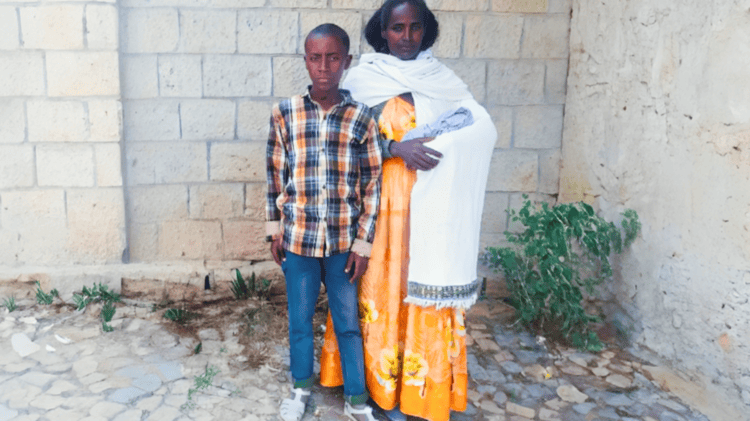 Stories
Stories
September 30, 2024 • 3 min read
The two-year Tigray war, which took place between 2020 and 2022, was a devastating conflict in northern Ethiopia. The human cost of the war has been immeasurable. Countless families have been torn apart, and an entire generation of children are still grappling with the trauma.
How Conflict Tears Apart Families
GOAL is supporting children orphaned by conflict in Ethiopia, including 14-year-old Solomon. The young boy used to live with his parents and four siblings in Tigray. His mother was a loving and devoted housewife, while his father supported their family with his farming income.
When the conflict began, Solomon’s father joined the military. Solomon was distraught. His father was the cornerstone of their family, both emotionally and financially. Tragically, Solomon’s father was ultimately killed in the fighting.
This loss was devastating for little Solomon. The young boy was angry and struggled to regulate his emotions. His school performance began to decline as Solomon tried to adjust to a new life without his father’s comforting embrace.
The shock of losing her husband so suddenly also had a profound impact on Solomon’s newly widowed mother. She fell ill and passed away shortly thereafter.
A Child Orphaned by Conflict
“It was tragic to see our family disintegrate step by step,” Solomon says. “We did not even process the passing of our father, and when our mother died, we were not sure what our fate would be.”
Following the loss of his mother, Solomon felt angry and depressed. None of his relatives could afford to care for all five children independently, so Solomon and his siblings were separated. It was Solomon’s aunt who later discovered that GOAL was supporting children orphaned by conflict with psychosocial support and cash assistance.
“He was not well when we found him first. The shock and anger made him [feel] aggressive and hopeless,” says Abraham Wendmagegn, an Area Senior Protection Officer for GOAL.
“We started communicating with him regularly and provided him with psychosocial support to accept what had happened and move forward. Through time, Solomon started to show progress, and we are excited to be able to support him, and many others who are going through the same experience.”

Solomon and his aunt, who became his guardian after he was orphaned by the Tigray War.
Psychosocial Support in Humanitarian Crises
Many vulnerable communities in Ethiopia face significant challenges when attempting to access basic healthcare, as the provision of health services has been repeatedly disrupted by conflict.
Ethiopia’s healthcare system lacks the resources to address the psychological impacts of humanitarian crises. As a result, those affected by conflict or displacement often cannot access the support needed to process their trauma and rebuild their lives.
For children like Solomon, GOAL’s support is absolutely critical. Recently, he also received school supplies from GOAL to regularly attend school and engage with his peers.
“We can support children like Solomon due to funding from [the European Union (ECHO)], so we are grateful for their support. Assistance is provided for many other children too,” continues Abraham Wendmagegn.
GOAL provides case management support to hundreds of Orphaned and Vulnerable Children (OVC) in Ethiopia. GOAL has provided emergency cash support to 305 vulnerable children to pay for items like medication, school supplies, clothing, hygiene kits, and food.
“We hope to see similar assistance in reaching many more children who are in similar situations to Solomon,” Abraham says.
